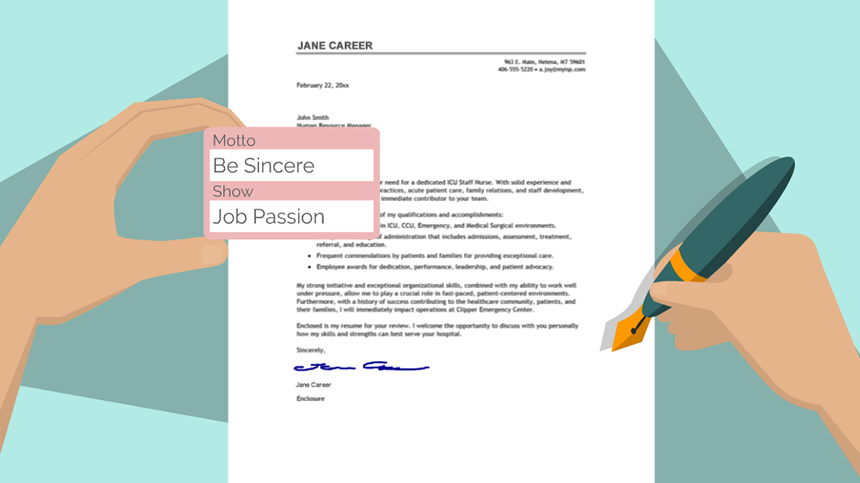Module 03: Job Search
Cover Letter

Many job seekers don’t spend enough time on their cover letter. While some employers ignore cover letters, others carefully read through them. Since there is no way to know whether a prospective employer will read your cover letter, it’s advisable to spend time creating a compelling document.
A well-written cover letter can:
- Reveal the person behind the resume
- Convey passion for the position and the organization
- Demonstrate that you’ve done your research
Draw clear connections between the job requirements and your experience.
Writing a Cover Letter
The following headings will assist you in drafting your cover letter:
Your Name & Contact Information (you may use the same header as you used on your resume)
Date
Contact’s Name (if not in the job ad, research to determine the person’s name)
Contact’s Title
Company Name
Address, City, Province, Postal Code
Dear Mr./Mrs./Ms./Dr. (Contact’s Last Name):
If no name or title – use Dear Hiring Committee:
INTRODUCTION: Explain what motivated you to write the letter. Name the position/job posting for which you are applying and how you heard about this particular employment opportunity. You can refer the employer to the attached resume in this paragraph or in the final paragraph.
BODY: Carefully explain how your skills match those needed for the job. Use action verbs (e.g. planned, organized, completed) to describe your skills as they relate to the job. When responding to a job ad, make sure to address all the listed requirements. This will make it easier to match your skills to the job- both for the resume scanning technology and the human who will eventually read your resume.
Include a paragraph outlining why you would like this job and why you’d like to work for this specific organization. Explain how this particular opportunity matches your goals and interests. Mention something you have learned about the company during the course of your research. This is your chance to expand on how your skills and past work experience will serve the role and the organization. It will also provide evidence that you have done your homework.
CLOSING: Use an appropriate closing to pave the way for an interview by suggesting a meeting to further discuss your qualifications. You can refer to your attached resume here if you have not mentioned it earlier. Always thank the employer for their time.
Sincerely,
Signature Here
Your Name
Recipe for a Compelling Cover Letter
- Make sure your cover letter is focused and no more than 1/2 to one page in length
- Customize your cover letter for each position
- Strategically integrate keywords from the job ad
- Leave plenty of white space for easier reading
- Communicate your enthusiasm for the position
- Proofread your cover letter and ideally ask a trusted advisor or friend for feedback
- Keep a copy of each cover letter

